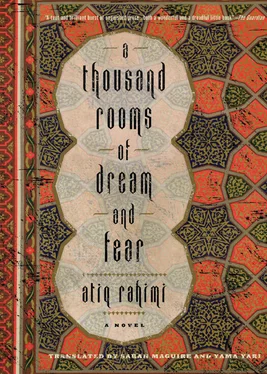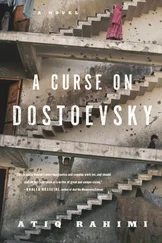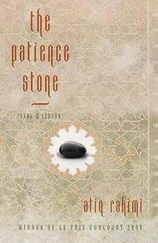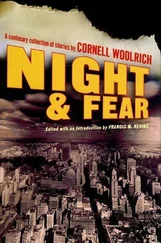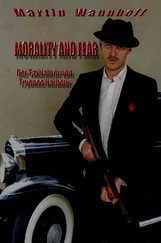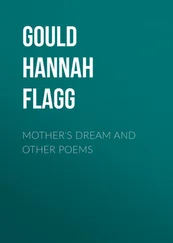I’d gone to the university library to take out the Book of Shams , but the librarian told me someone else was reading it. So I borrowed another book and, having given it a quick glance, sat down. At the far end of the table was a young man wearing a pair of dark glasses. His head was buried in a book and he looked as though he wanted to devour every word. Since it happened to be the one I was after, I sidled up to him and coughed, so politely that even I could barely hear myself.
“Excuse me, but would you mind letting me know when you’ve finished with that book …” I whispered.
Lifting his intense gaze from the page he was scrutinizing, he shot me a look, loaded with the passion of the words he was consuming. He gave me a quick nod and once more buried his small head in the big book.
After a while he looked up again and wrote something in the margins of his book. Then he indicated to me with a gesture that he’d finished reading. We went up to the desk together so I could take the book out, and then I returned to the table. The first thing I did was look for the page that he’d written on. He’d underlined the words, “We cannot speak. But if only we could hear! Speech has no meaning without a listener. But ears are sealed, hearts are stopped, tongues are fettered …” And at the margin of the page, in pencil, he had written: “= annihilation.”
The same day, in the university café, I found the scribe of the Book of Shams . We chatted together over a cup of tea. His name was Enayat.
What else can you call those moments of nameless terror other than “annihilation?” Those moments when you begin to doubt your very existence. When you’re so paralyzed with fear that you turn to fantasies for reassurance, to imaginary women, to djinn, to angels, to life after death …
I’d managed to empty my head of those phantoms a very long time ago. The djinn were nothing more than children’s games in a play directed by my grandfather, and the afterlife was a cover-story dreamt up by the human terror of nonexistence …
But the butts of those Kalashnikovs summoned up my slumbering grandfather and the long-forgotten djinn and set them center-stage once more. I’d much rather believe in the reality of their performance than in the utter abeyance of annihilation!
Yes, I do believe in the journey of my soul, in the existence of the djinn, in the finality of death — but I cannot believe what I’m going through right now …
“Farhad, have you got a phone at home?”
With the aid of a swig of tea, I manage to swallow the dry bread in my mouth, and without looking at Mahnaz’s face framed by the doorway, I answer, “No! But …”
“Then give me your address!”
I get up and move toward the door.
“Please, my dear Mahnaz, really, you’ve done more than enough …”
“I want to know your address.”
Reluctantly, I tell her.
“I won’t be long.”
She leaves. I remain fixed to the spot. Before opening the door out of the corridor, Mahnaz pauses to call Yahya. He comes running from his mother’s bedroom.
“Yahya, don’t open the door to anyone!”
She leaves the corridor. Takes a few steps on the terrace. And returns to the house. I move closer to the doorway.
“Is there anything you want me to tell your mother?”
“No … but …”
I cannot go on. I want to insist that I will go myself, that …
“You’ll have to go before midday. Please don’t leave the house until I get back. I don’t want anyone to know you’re here.”
She turns to go on her way. I stand by the window. Mahnaz opens the street door and disappears. Yahya waits for me in the doorway to the room.
Perhaps I have landed in a city that spins forever around a giant bridge.
Mahnaz should have reached our street by now. She must have asked directions at the bakery:
“Can you tell me where Farhad’s house is? His mother is a teacher, Humaira.”
Safdar, known as “Long Fingers,” has pulled his head out of the clay oven, wiped the sweat from his brow, and said, “First street on the left, second house, the wooden door with no paint.”
At the mention of my name, as always, Safdar’s brother stops kneading the dough, and his sweet voice calls from the far end of the bakery, “Last night the sound of Farhad’s chisel never reached us from Mount Beysitoun … It’s into the dreams of Sheerin that Farhad now has gone …”
Mahnaz is standing outside our door. Without a moment’s delay she presses the bell, but she can’t hear it ring. She’s forgotten that there’s been no electricity in Kabul for some time now. After a minute, she rattles the chain on the door. And then she hears the voice of Parwaneh or Farid ask from behind the door, “Who is it?”
What should she say?
“I’ve got news from Farhad.”
There’s a brief silence and then Parwaneh or Farid opens the door halfway, and gives Mahnaz a curious look.
My mother’s exhausted, hopeless voice calls from the courtyard, “Who is it?”
Parwaneh — or Farid — pushes the door nearly shut. No, why would they close the door? Their eyes fixed on Mahnaz, brimming with curiosity, they call back to my mother, “It’s someone with news of Farhad.”
My mother runs to the door. If she trips on the loose tile, for the first time ever she will forget to curse me for not having mended it. Her frightened face appears at the door. She doesn’t open it completely. Peering around the half-opened door, she examines Mahnaz from top to toe. She doesn’t dare ask, “What has happened to him?”
“My name is Mahnaz. I’ve come on behalf of Farhad.”
Who on earth is Mahnaz? Why have I never said anything about this girl? She sizes up Mahnaz. She is not short. So she’s not a liar. She has a steady gaze. My mother opens the door to Mahnaz. She asks her in. Before shutting the door, she scans the street in both directions with an anxious look. She closes the door. She fixes her dark-ringed, sleepless eyes on those of Mahnaz. Mahnaz understands my mother’s terrified, questioning look and immediately reassures her. She says that I’m fine, safe and sound, but I’ve had to hide in her house. What am I doing hiding in this woman’s house? Is there anything going on between us? Mahnaz lifts her hair back from her face and tucks it behind her ear, and begins to recount the events of last night.
My mother hides her mouth behind her bony hands. What can she do? How can she help me? Which door should she knock upon? Should she go to her cousin who’s become a high-ranking official?
No, never! How can she beg for help from someone she was once in love with when she was young — but whom she left for another man? Her cousin has never forgotten my father’s jealousy. Every time my father set eyes on my mother’s cousin, in his flashy military clothes, his blood would rise. He would say, “Fuck the mother and sister of Taraki and Hafizullah Amin!” He would pick petty political arguments, and my mother’s old flame would get upset and walk out. Then my father would crow with joy in my mother’s face. The very day my father took another wife and fled to Pakistan, my mother’s cousin came to our house with a sheepish look on his face. My mother spat at him and threw him out.
What will my mother do?
She will ask Mahnaz to wait in the front room while she goes to put on her veil.
She will come to see me with Mahnaz.

“Look, Father, I’m drawing this for you.”
Yahya’s little hand moves a crayon across a black sheet of paper.
“What is it?”
“A moth.”
“But where is it?”
“You can’t see it because it’s too dark.”
Читать дальше
